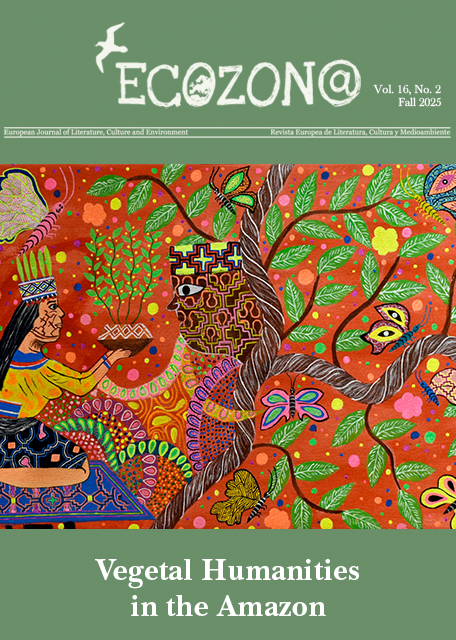“[F]earful Hard Work”: The Possibilities and Pitfalls of a Victorian Eco-Georgic
DOI:
https://doi.org/10.37536/ECOZONA.2021.12.2.4208Schlagworte:
Hardy, Jefferies, Crackanthorpe, high farming, sustainableAbstract
As a form of literature that engages with the lived realities of farming life, the Georgic offers an insight into the kind of close working relationship that is possible between humans and nature, a relationship that may in turn be described as ecological in its concern with adaptation and sustainability. This essay focuses on three examples of Georgic literature that highlight both the possibilities and pitfalls of making this association: Thomas Hardy’s Tess of the d’Urbervilles (1891), Richard Jefferies’s Amaryllis at the Fair (1887), and Hubert Crackanthorpe’s short story, “Anthony Garstin’s Courtship” (1896). All three were written during the Victorian period, when innovations in “high farming” had made it possible to increase yields without overly exploiting the land. As these narratives illustrate, this form of farming nevertheless involved back-breaking, exploitative and often poorly paid work. Moreover, farmers were already under pressure to mechanize their processes where possible, maximising yield regardless of long-term consequences. Small farms were themselves are threat, because less economically viable. Whatever ecological balance high farming embodied, it could not long survive these wider socio-economic pressures. In their concern with these particularities, these narratives nevertheless offer an insight into what an eco-Georgic might mean, as a form of writing properly attentive to the challenges of reconciling human and nonhuman needs, and accommodating both within a global, capitalist framework. These works are, furthermore, alert to the difficulty of how best to (re)present those challenges; each shifts away from conventional realism and towards new literary modes better able to confront the idealising, pastoral expectations of an urban readership. As such, these works emerge as prototypical forms of a modern, self-reflexive form of (eco-)Georgic mindful of the practical difficulties of sustainable living, and flexible enough to find innovative ways of representing them.
Downloads
Downloads
Veröffentlicht
Ausgabe
Rubrik
Lizenz
Authors who publish with this journal agree to the following terms:
a) Authors retain copyright and grant the journal right of first publication with the work simultaneously licensed under a Creative Commons Attribution License that allows others to share the work with an acknowledgement of the work's authorship and initial publication in this journal (CC BY-NC for articles and CC BY-NC-ND for creative work, unless author requests otherwise.
b) Authors are able to enter into separate, additional contractual arrangements for the non-exclusive distribution of the journal's published version of the work (e.g., post it to an institutional repository or publish it in a book), with an acknowledgement of its initial publication in this journal.
c) Authors are permitted and encouraged to post their work online (e.g., in institutional repositories or on their website) prior to and during the submission process, as it can lead to productive exchanges, as well as earlier and greater citation of published work (See The Effect of Open Access).










